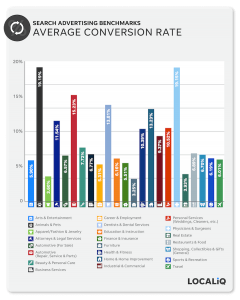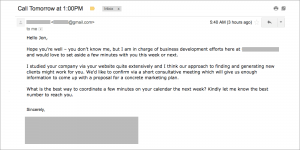Most of the companies we’ve worked in or have had the privilege of serving face fairly stiff competitors. Competition is a fact of life, whether it’s one team or individuals pitted against another on the playing field, or students competing for scholarships for academic studies, nonprofits fighting for donations, or businesses competing for customers and market share. Outperforming and outmaneuvering your competitors is vital for success. It is also one of the biggest challenges most companies face.
Direct competitors are typically pursuing the same goals as you, such as accelerating growth – for example by finding new market opportunities for products and services, entering new markets, or retaining and growing the value of their customers. While it seems obvious that the key is to outperform your competitors, it often is not that simple.
At minimum, to be competitive in your market you must excel at:
- Understanding and delivering solutions that solve customer problems.
- Properly positioning your solutions and developing a compelling and relevant value proposition.
- Becoming proficient in strategy development and execution.
- Rapidly adapting to changing market dynamics and customer behavior.

Outperforming and outmaneuvering your competitors is vital for success.
Even when you are a strong competitor with a solid competitive advantage, there’s always a rival you are challenged to overcome or a new one on the horizon nipping at your share and attempting to poach your customers.
Sometimes rivalries are very public, such as Uber vs. Lyft, or Intel vs. Samsung, or Oracle vs. Salesforce. Rivalries are good. Strong competitors can often be the very motivation you need to help you excel. Jon Wertheim and Sam Sommers wrote in their book, This Is Your Brain on Sports: The Science of Underdogs, the Value of Rivalry, and What We Can Learn from the T-Shirt Cannon, that there is “something about having an opponent that gets us to dig deeper, into otherwise-untapped reserves.”
How a Little Rivalry Can Maximize Your Marketing Effectiveness
Your competitors will help you take your Marketing up a notch and enable you to make your Marketing more effective. Gavin Kilduff documented how rivalry can lead to an increased effort to succeed when he published the results of his study of long-distance runners in “Drive to Win: Rivalry, Motivation, and Performance” in Social Psychology and Personality Science.” He chose to analyze runners for three reasons:
- “Competition occurs frequently.”
- “There is a fairly clear link between motivation and performance.”
- “Performance is largely independent, mitigating issues with studying the effects of rivalry on competitive performance in team sports.”
He found that in the presence of at least one rival, runners were as much as 4.92 seconds faster per kilometer — meaning that in a 5K race (3.1 miles), a runner could improve his time by nearly 25 seconds with a rival in the race, as opposed to a race against no rivals.
Whether you’re doing a sprint or trying to go the distance, competition, especially strong competition, can go a long way toward helping you fine tune your capabilities and improve your overall effectiveness.
Making the Most of Your Competitive Intelligence

Competitors can motivate you to work harder.
There are three ways right out of the gate where your competitors can help you improve your performance.
First, strong rivals provide opportunities to learn where you’re weak and where you can use your strengths to your advantage. Solid reconnaissance provides insights into how your competitors perform. In the business world, primary research, social listening, and secondary research can provide these insights. Post-game analysis can also be very enlightening. In the business world this often takes the form of win/loss analysis. Such insights can compel you to modify and innovate offers, channels, and processes.
Second, competitors can motivate you to work harder, be more customer-centric, stay focused on your outcomes, and take a little more risk. In the business world this often translates to good planning, solid strategies, and being in tune with customers through the use of advisory boards and voice of customer and customer success initiatives. Small wins can make a big difference and can impact key measures of success, such as improvements in share of wallet, increases in your customer referral rate, and expanding your category ownership and margin of victory. This data and metrics-based approach requires you to know and track your numbers.
Lastly, rarely are your competitors at the same stage in their development as you. Those that are stronger and further ahead on the performance curve can give you a glimpse into what will and won’t work in the market. As a result, you can gain insight into effective strategies and tactics and avoid potential pitfalls and costly mistakes.
Scope out and track your competition, especially your strongest rivals. Invest in regular competitive analysis to understand both what to do and what not to do. Yes, learning from your competitors takes time, money and people. But it is one of the most effective analytical tools for improving your performance, accelerating your growth, and creating more customer value.
Business & Finance Articles on Business 2 Community
(79)
Report Post







